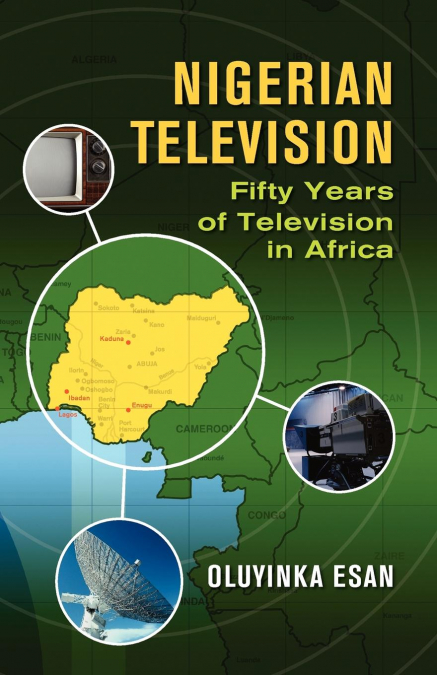
 Librería Desdémona
Librería Desdémona
 Librería Samer Atenea
Librería Samer Atenea
 Librería Aciertas (Toledo)
Librería Aciertas (Toledo)
 Kálamo Books
Kálamo Books
 Librería Perelló (Valencia)
Librería Perelló (Valencia)
 Librería Elías (Asturias)
Librería Elías (Asturias)
 Donde los libros
Donde los libros
 Librería Kolima (Madrid)
Librería Kolima (Madrid)
 Librería Proteo (Málaga)
Librería Proteo (Málaga)
Past efforts at documenting the general history of television have tended to focus mainly on Western examples, often superficially aggregating the African experiences, when they are featured at all. A search for literature on the subject yields sparse results thus creating the impression of a void in this vast continent. This book offers invaluably detailed information on Nigerian television as an example of the industry in Africa. The focus on Nigeria is justified as the nation boasts the first TV station in Africa, and the largest TV network on the continent. Nigerian Television: Fifty Years of Television in Africa is both timely and strategic as Nigeria celebrates the golden jubilee of its television industry (1959 to 2009). Appreciating the challenges, role and prospects of the industry was at the very core of the author’s raison d’être for writing the text. The research effort informing the book has sought to capture factors shaping the encoding practices of Nigerian television in its five decades of operations. The book is primarily an account collated from a range of organisational sources using ethnographic techniques. It examines the pioneering efforts, offering an insight into the use of television as a tool of governance. It shows how central television has been in this process thus revising previous views which, in their celebration of radio as the medium for social mobilisation at the grassroots, have understated the profile of television. This is an account of a significant aspect of cultural life which should facilitate an understanding of the role of television as an important medium in the politics of a nation; especially one with such diverse identity groups and cultures as Nigeria.